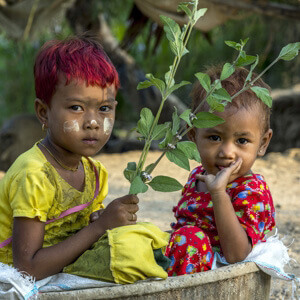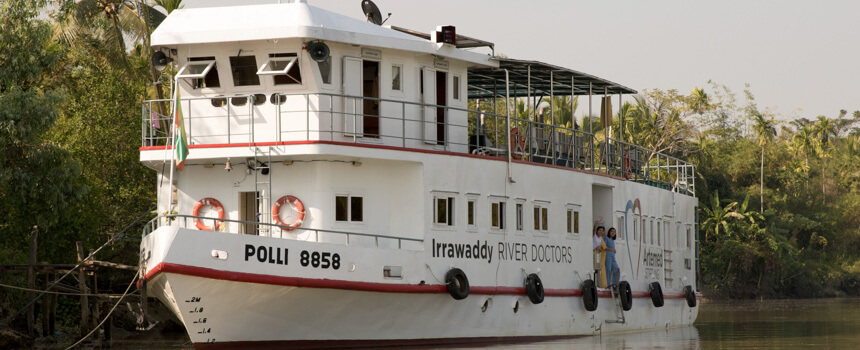 Bite your way through life
Bite your way through life
Dental hygiene for children in Myanmar
'We have everything we need,” says 18-year-old Moe Moe with a smile. In her case, everything means a happy and, above all, healthy life with her family. However, ensuring good medical care in the small villages in the Irrawaddy Delta is a great challenge. The way to the doctor or to the nearest clinic is difficult – and unaffordable for most people. For many, the floating clinic in a boat is the only access to medical care. And this also applies to dental care. Even the youngest of them are struggling with tooth decay and other dental problems. Since the political and economic opening of the country a few years ago, sugar-rich products have also become common in Myanmar. Just like in Germany, children in the Delta have to learn how to protect their teeth and thus their health in the long term.
Necessity
Dental hygiene and toothbrush sets for children in the Irrawaddy Delta in Myanmar
Activity
Children in the Irrawaddy Delta are given kits with toothbrushes and tooth paste as well as instructions on proper dental hygiene.
Countable effort
Number of children who have undergone dental hygiene instruction and are provided with a dental kit.
Result
The children get a basic understanding of dental hygiene, while daily brushing reduces the risk of tooth decay and other dental illnesses.
Systemic effect
These preventive measures in the Irrawaddy Delta contribute to a better dental health in general and thus an increased overall quality of life for the people.
Background
In the Irrawaddy Delta, the river is generally the only link between the small villages and a lifeline for millions of people. Because of these special geographical conditions, the region is less developed than the rest of the country. Many people live under difficult conditions, with low incomes and in basic shelters. In addition, there are hardly any doctors in the Delta and the few existing clinics are in a very bad condition. Apart from that, the majority of the inhabitants simply cannot afford a doctor or the travel to a clinic. The project Irrawaddy River Doctors sends Burmese doctors and nurses to the isolated areas of the Irrawaddy Delta using a floating clinic. In the GP’s and dentist's surgery, with a small laboratory, basic medicines and hygiene articles, the team treats between 50 and 150 patients a day on board of the boat. Every month, the mobile clinic spends 23 straight days on the Irrawaddy, heading for a new village every two to three days. Up to 16 villages are visited every month.
The good deed
All children examined at the Irrawaddy River Doctors floating clinic participate in the dental hygiene program. Today's good deed is an important step in establishing the programme. In addition, upon completion of the programme, each child will receive their own dental kit. They will also learn how to brush their teeth properly and keep them healthy in the long run. Tooth brushes and tooth pastes for the children in the Delta can successfully improve bad dental condition. Through the awareness-raising and education campaign, a long-term understanding of this topic can be created, at the same time preventing diseases.

AboutMyanmar
Naypyidaw
53 370 609
5.567
148
Myanmar is undergoing a political and economic transformation. Because of its geographic location, the Irrawaddy Delta benefits very little from this development.
About the organization and further information
artemed Stiftung




